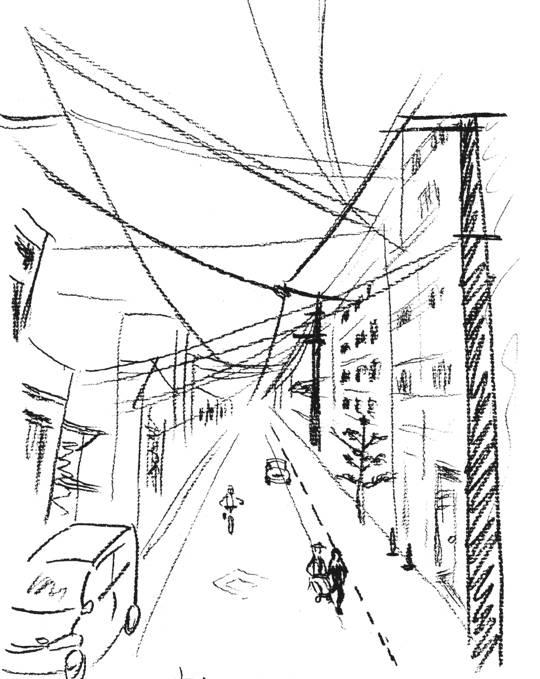
In life, there are many stories that take place on street corners.
The story may be warm, it may be sad, but everyone must have a story on the street corner.
Haven't many songs been sung, with the surprise of "who I met around the corner of love"; the bitterness of "I had to pretend I couldn't see, I couldn't see you and her hugging across the street"; and there was also the lamentation of "I want to meet you again, at the coffee shop on the corner". Isn't the reason these songs move us is because it sings a certain past in our hearts?
The street corner is such a magical place. Because it is the intersection of two streets, the traffic is the largest, and shops are willing to choose the location on the corner. For pedestrians, you don't know what you will encounter when you turn around this street corner, it is a beautiful sycamore, an interesting shop, or a person who makes you fall in love at first sight. It can be said that the charm of city life is largely at the corner of the street.
Many people prefer research, showing street corners, where, in everyone's story, there is a code for social and contemporary changes. William Furt White is the author of "Street Corner Society", starting from a group of Italian youths on street corners, and finding a way to interact with society; Osamu Tezuka has "The Story of a Street Corner", a group of characters who seem to have no direct connection, but in the corner of the street, they witness the changes in the world, or reflect the changes in the world; there is a movie in Taiwan called "The Little Prince on the Corner", a street corner kitten, stringing together a warm story...
There is a passage in "The Death and Life of America's Great Cities" that the frequency of streets and the shortness of street segments are very valuable, because they can allow users of urban blocks to have intrinsic organic cross-use. The frequency of streets is not an end in itself, they are a means to an end — namely, to generate diversity and increase direct human connections.
Isn't the reason why people like to live in big cities is because there are many interesting things and interesting people that can be met in big cities? And around the corner, these things happen wonderfully.
Unfortunately, in today's China, there are fewer and fewer street corners.
Many cities in China are obsessed with creating "garden cities". If you think of a "garden city" as a cluster of flowers and trees, that's not bad in itself. The problem is that many places understand "garden city" as low density and wide roads, especially in the construction of new cities blindly pursuing wide roads, large squares and large green belts, Tokyo Ginza can reach 200 intersections per square kilometer, Shanghai Pudong, Beijing North of the city of each square kilometer intersection is only a dozen, less street corners, resulting in pedestrians on both sides of the road can not reach the "entrance population" required by the service industry, the service density is too low, commercial prosperity can not be talked about.
Low density leads to insufficient supply of services, further affecting people's lifestyles. On the one hand, people need to drive more to the consumer service industry, causing low-density communities and city centers to commute pressure, exacerbating traffic congestion and exhaust emissions; on the other hand, low-density communities themselves have become "sleeping cities", the most famous Tiantongyuan and Huilongguan, on weekends, many people choose to drive out and spend elsewhere, in turn, the service consumption of the community is restricted, living in such a community, life becomes more like "alive".
The street corners are inconspicuous, and the stories that happen there may be trivial, but that's the reality of life. There are fewer street corners, and there is less life.
In my ideal, a good city life is to always look forward to the next corner, and from time to time there will be surprises on the next street corner.
I hope that one day we will have that kind of city, that kind of life.